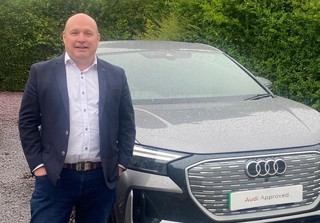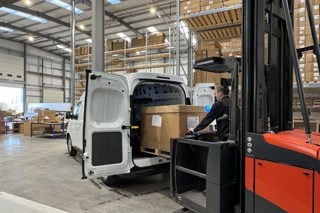The fleet sector has issued a unanimous riposte to Government proposals on the tax treatment of salary sacrifice and car/cash allowance schemes: exempt cars from any new arrangements.
The Government is consulting on new tax legislation to charge benefit-in-kind (BIK) provided through salary sacrifice to income tax and Class 1A National Insurance Contributions (NICs), if the taxable value is higher than the salary sacrificed.
Any company offering a choice of a cash allowance or a company car will also be impacted. The calculation of tax will move away from BIK based on list price/CO2/fuel type to a comparison of BIK versus cash allowance value, with the greater of the two chargeable to income tax and NIC.
The proposals could affect up to 650,000 people who have taken a salary sacrifice car or receive a vehicle as part of a cash or car benefit scheme, according to the British Vehicle Rental and Leasing Association (BVRLA).
The tax proposals were discussed at an industry roundtable organised jointly by Fleet News, the Association of Car Fleet Operators (ACFO) and the BVRLA. It was attended by public and private sector fleets, leasing companies and tax experts from Ernst & Young. A number of concerns were raised, including the view that the proposals would effectively kill off car salary sacrifice and offering cash as an alternative to a car. Staff would buy their own cars which will typically be older and more polluting.
It would affect emissions and also result in fewer company car registrations and lower tax take for HM Revenue & Customs (see below for more).
One fleet delegate said: “Given all the extra regulation, employers might choose to pull out of offering salary sacrifice, particularly where there’s no recruitment and retention benefit.”
And another fleet issued a stark warning to the Government: “Most of our orders are very low CO2 and we have got a very high uptake of electric and hybrid in particular. But if that salary sacrifice proposal goes ahead our scheme will close and staff will have to buy their own cars out of their pay packet – probably used vehicles and they won’t be so interested in the CO2 emissions.”
Any changes to the tax treatment of car/cash schemes would also raise costs for employers, who would need to invest in new payroll and HR reporting systems.
According to one delegate, employers would probably look to remove the cash option, limiting the choice offered to staff. “If somebody’s already in a car and they have a cash alternative then you just take that cash alternative away,” he said.
Another added: “Under the proposals, if you impose a benefit in kind on your employee that’s fine, but, if you give the employee a choice, it’s not. That to my mind is fundamentally wrong.”
Delegates firmly believed that salary sacrifice and car/cash schemes were already subject to a tax system which is effective, accurate and progressing in incentivising drivers towards the Government’s own objectives on ULEVs and emissions.
The consultation period closed on October 19 and an announcement is expected in the autumn statement on November 23 at which point the Government will publish an updated fiscal summary outlining its revenue expectations and the policy detail. The planned date for introduction is April 2017.
Leasing companies are confident that their lobbying with local MPs and policymakers is starting to gain some traction. However, even if cars remain part of the proposals in the autumn statement, the industry can continue to push for their removal, according to experts from Ernst & Young.
Chris Sanger, global head of tax policy at Ernst & Young, said: “We do have another stage of consultation. Post November 23, we have legislation day on December 5 which is when the draft legislation is published. That’s then under consultation until January 31 next year so, at the moment, it’s really important we keep the Government focused. That gives them a chance to respond and once we’re past the 23rd if they haven’t taken company cars out, that’s a time when I think you can turn up the temperature, because they will have then made their decisions.”
Sanger pointed out that there is often a disconnect within Government due to the different roles of key departments. HMRC deals with policy maintenance, which means policing the income tax code and generating sufficient revenue. Its view is that salary sacrifice is being used as a tool to reduce the amount of tax revenue coming in and therefore it needs to close this down.
However, the Treasury is looking at the use of the taxes in terms of social and economic policy and is trying to drive behaviour, such as the move towards low emissions cars.
“Those two teams, policy strategy on one side and policy maintenance on the other, will not naturally talk to each other,” Sanger said. “It’s understandable that we’re in this environment. One of the key elements now must be to join those two items together.
“Fundamentally salary sacrifice has enabled employees to choose vehicles in a way that is completely and utterly consistent with Government policy. And also the BIK regime we have for company cars allows the Government to change that policy if it wants to without having to go and include it within something as wide as this salary sacrifice regime.”
ACFO deputy chairman Caroline Sandall, who attended the roundtable debate, agreed, adding: “The existing company car benefit-in-kind tax regime provides high levels of certainty over the cost of future taxation for both employees and employers. Introducing changes of this scale and nature leads to uncertainty and will make both employees and employers question the viability of car schemes, leading to fewer schemes, fewer cars and, quite possibly, less tax revenue.”
Sanger said there are a number of myths to bust around salary sacrifice, including HMRC’s belief that such schemes are for higher earners and large employers. “Neither is true,” he said. “The proposal will impact most heavily on basic rate tax payers (82% of users). And smaller employers can operate salary sacrifice schemes successfully.”
One fleet delegate backed this view. He said: “One of the cheapest cars on our scheme is the Toyota Aygo, which is a very low emission car. Net cost to a basic rate employee is around about £160 a month. Under the proposal this goes up by nearly £40 a month which means the employee can’t afford it any more.”
The BVRLA has appointed Oxford economics to provide some research into the benefits of salary sacrifice schemes (see panel).
Gerry Keaney, BVRLA chief executive, said: “Our analysis suggests that HMRC’s proposals could have a negligible impact on tax revenues as some drivers give up their company cars and stop paying benefit-in-kind tax entirely. At the same time, the Government risks stifling the uptake of ultra-low emission cars and piling more misery on cash-strapped public sector employers.”
Employer reasons for introducing a salary sacrifice or cash scheme
* Flexibility to offer all employees benefits, e.g. those with low business miles are not interested in taking a company car.
* To attract and retain staff.
* To support staff salaries during long period of low/no pay rises; e.g. some schemes are part of a pay deal with unions.
* As a work enabler – helps staff get to work in areas where public transport is poor.
* Facilitates access to a new car for people who would never be able to afford one otherwise.
* Fits the companies’ green agendas: CSR reasons for encouraging uptake in new, low CO2 car rather than older, high polluting cars, which is particularly important for employers in city centres that are coming under pressure to reduce emissions.
* Effective use of budget: one size doesn’t fit all; employers can offer broad spectrum of reward packages.
* Could encourage older employees to remain in full employment for longer instead of retiring.
How the proposals could raise costs for employers
* Investment in new payroll/HR reporting systems is expensive, especially for large employers; complexity more so if there are ‘grandfather rights’ so existing scheme members keep benefits; means running two schemes. Particularly problematic at a time when there is already a lot of change impacting employers, e.g. national minimum wage and Apprentice Levy.
* Introducing proposals will effectively kill off car salary sacrifice and offering cash option as an alternative to a car. Staff will buy their own cars which will be older and more polluting.
* Reduction in new company car registrations means reduction in tax take for HMRC.
Making the case: supporting UK plc
* Company cars are the second most popular benefit-in-kind provided by UK firms, received by almost a million taxpayers.
* The proposed tax changes to the employer-provided car market will impact around 650,000 cars (70,000 salary sacrifice cars and 580,000 cash alternative cars).
* Salary sacrifice cars are a dominant source of ULEV registrations in the UK and recipients are already paying tax for their benefit which is going to increase well beyond the rate of inflation in coming years.
* In 2015, this market contributed £453m in tax receipts (income and corporation tax) to the Treasury and contributed £3.6 billion to GDP – these figures take into account the UK-made vehicles and engines, the activity of UK dealerships and its impact on the used car market.
* The market supports 37,000 jobs in the UK – directly, via the supply chain and consumer spending channels.
* 37% of cars in this market are made in the UK or contain an engine produced in the UK.






















Login to comment
Comments
No comments have been made yet.